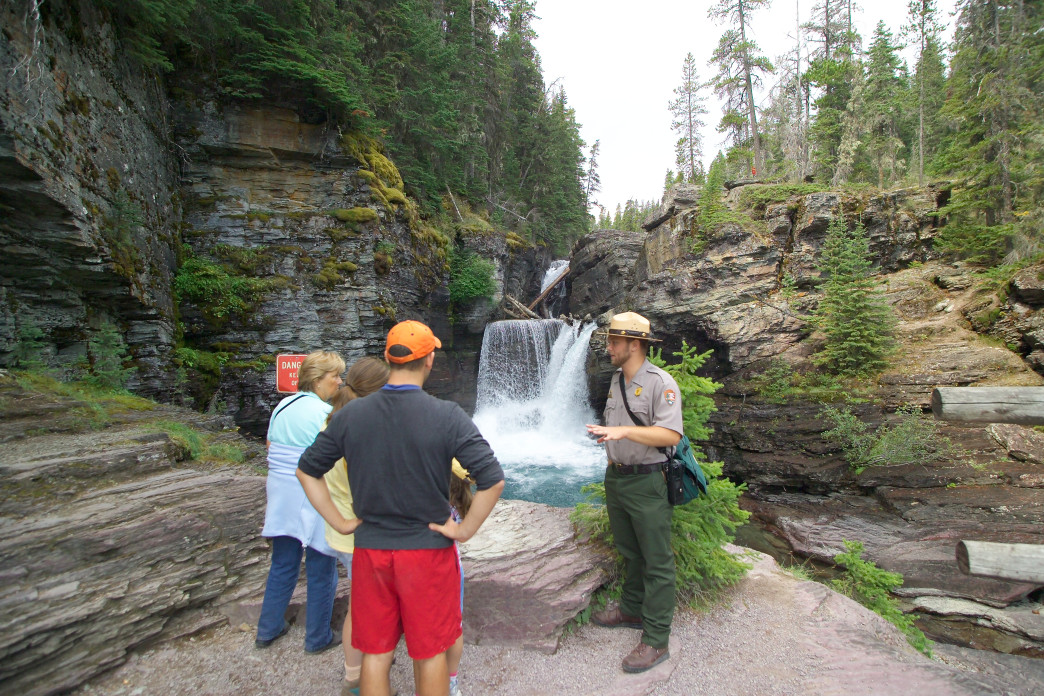Originally written for RootsRated
The Best Post-College Jobs that Keep You Outside
For many, the summer after graduation from college may be the last chance to play outside seven days a week-a final few months at that lifeguard post you’ve always loved, one last summer working at the golf course, a curtain call serving tables overlooking the lake, or even loading up your backpack to wander strange, foreign lands.
But it doesn’t have to the end. Before donning the business casual attire, and adorning the cubicle with the banner of your alma mater, it might be worth looking into a career that keeps you outside. A few of the following careers can help you start the search.
Become a NOLS instructor

Renowned mountaineer Paul Petzoldt founded the National Outdoor Leadership School, or NOLS, in 1965. NOLS instructors teach people of all ages valuable outdoor leadership, technical skills, and environmental ethics in some of the most beautiful and remote corners of the planet. Even better, NOLS has entry-level internships available.
Chairlift Operator
“Lifties,” as chairlift operators are often called, have more than a few choices on where to seek employment. There are over 450 ski areas in the United States from Vermont to California. Chairlift operators function as a major portion of the entry-level workforce at most resorts. The position also serves as a prerequisite for other ski area jobs such as ski patrol, mountain operations, and sales/marketing. Working in the ski industry has many perks: flexible schedules, competitive wages, and a free employee annual ski pass. Lifties often ski or snowboard a portion of each day as well to access certain work locations or just hitting the slopes during lunch break.
Adventure Writer/Photographer
For the creative and self-motivated, a freelance outdoor writer or photographer might be the best job in the outdoors: complete freedom from the routine, constant travel, and the chance to work alongside professional outdoor adventurers and athletes. Motivation is most likely not the limiting factor in starting this career, but developing your skill set may be. The truth is, most great writers and photographers work hard at their craft and have taken the time to develop their skills. It takes photography workshops, creative writing classes, and endless hours online observing what others have already contributed to refine your own creative juices. Those that put in the extra time will be rewarded though. With social media and online periodicals growing, and outdoor retailers competing for authentic advertisements and stories, your content is needed now.
Raft Guide

For those seeking a daily adrenaline drip into the veins, commercial raft guiding might be the career for you. The pay is not great, but the working locations are unparalleled. Picture navigating a raft through deep canyons while your passengers scream in delight as wave after wave crashes against the rocks and into the boat. Raft guides know how to have fun, but they take their jobs very seriously. As a professional guide, your clients will put their life in your hands each time the boat is launched. Many commercial whitewater companies offer a range of rafting experiences from family-friendly Class II runs to world-renowned Class V multi-day excursions. This also means entry-level positions are available as almost all of the necessary skills are learned on the job.
Camp Counselor
Ever seen the cult-classic Wet Hot American Summer? The screenplay for the comedy about camp counselors was written by David Wain and based on the real-life experiences he had at a summer camp in Belgrade, Maine. And while the true camp counselor job is not as ridiculous as it is portrayed in that movie, the realities of getting paid to hike, canoe, play games, and teach young adults about nature are.
Park Ranger

The line most park rangers use to describe their jobs is “I get paid in sunsets.” That may be true, but park rangers also have a busy and diverse career. From Yosemite National Park to local state and county parks, rangers perform patrols, educate visitors about natural history, care for public safety, and manage wildlife and other resources. Aside from the sunset payment arrangement, park rangers also note the best part about their jobs is that each day is different. During the summer months, many national and state parks, recreation areas, and local park departments hire a seasonal or temporary workforce to assist rangers in collecting entrance fees, performing maintenance, and managing visitors. Working seasonally in one of these positions is a crucial step in building a park ranger resume.
A Career with the National Forest Service
What do outdoor meccas like Ashville, North Carolina, Boulder, Colorado, and Lake Tahoe, California, all have in common? They all have a local U.S. Forest Service office. Often overshadowed by the National Park Service, the National Forest Service actually manages twice as much land as the park service and is the second largest federal employer outside of the Department of Defense. With more acreage, and much more diversity of land uses, the National Forest Service offers a multitude of career positions including botanists, snow rangers, wildland firefighters, wilderness specialists, and more. With a large portion of the current workforce nearing retirement, the National Forest Service is hiring now.
Environmental Scientist
With global warming, clean drinking water, droughts, and national disasters like wildfire and flooding making national headlines, environmental scientists are in demand now more than ever. Environmental planning, engineering, and research are needed to correct or reverse these problems–and to course correct before others occur. Non-profits, private environmental consulting companies, and government agencies all rely on environmental scientists to complete studies and other essential documentation as part of this process. And while many of these tasks require analytical thinking and higher education, they often need a pair of sturdy hiking boots and a heavy dose of sunscreen to be completed as well.
Originally written by RootsRated for Craghoppers.
Featured image provided by Glacier NPS

 A National Park Service Ranger speaking to visitors in Glacier National Park
A National Park Service Ranger speaking to visitors in Glacier National Park